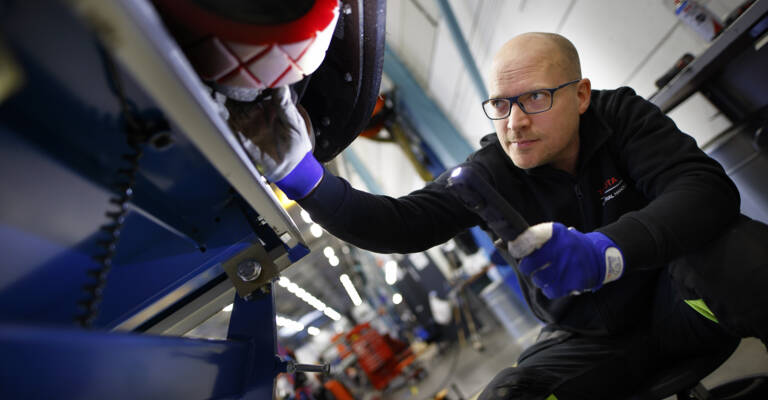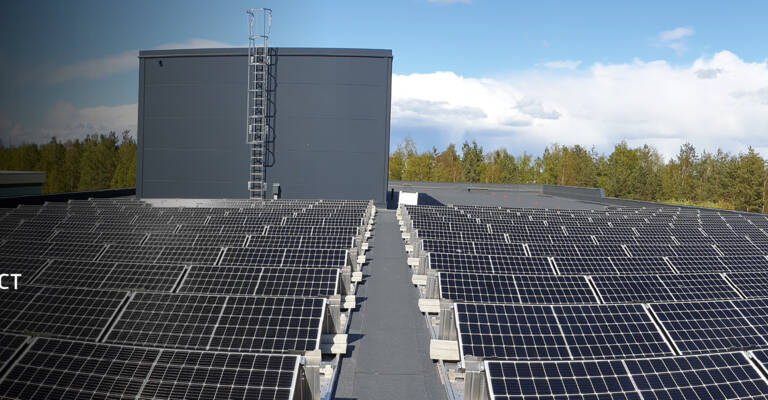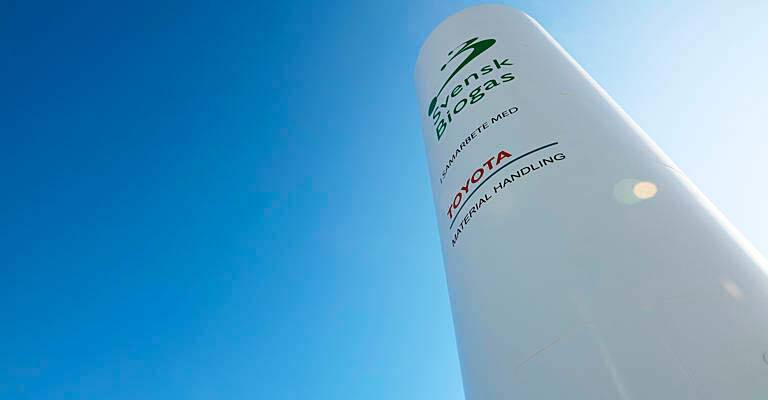
How TPS benefits your operation
Working with TPS principles allows us to produce our high-quality range of forklift trucks and material handling equipment, built to order and delivered to you on time.
Our production respects the environment, which includes recycling our products at the end of their lifetime. Continuous measurement and improvement means continually improving products, reflected by a 70% reduction in warranty claims over the past 10 years. We are also committed to creating a safe workplace, both for employees and our customers.
- Quality assurance
- On-time delivery
- Environmentally friendly
- Health & safety
How the Toyota Production System guarantees quality forklift trucks
All of our forklift trucks and material handling equipment are produced according to the Toyota Production System. Over 95% of our European product sales manufactured in our own factories in Sweden, France and Italy.
This means that they all benefit from the highest levels of quality assurance based on just-in-time planning. This is combined with Jidoka – a method we use to ensure that errors are immediately detected and rectified.
- Jidoka: making problems visible
- Kaizen: continuous improvement
- 100% value-added
The origins and culture of Toyota Production System
The Toyota Production System was developed by Toyota in the 1950's in response to a lack of financial resources post-war. However, the origins of TPS started much earlier.
The very start of the story can be traced back to the 1920's. The concept of Jidoka, which was originally developed by Toyota's founder, Sakichi Toyoda, as 'intelligent automation'.
In the 1930s the concept of 'Just-in-Time', was invented by Kiichiro Toyoda. This was as part of his efforts to create an efficient way of manufacturing Toyota cars, when resources were scarce, and waste could not be afforded. Just-in-time depends on getting exactly the right goods (components) to exactly the right place at the right time.
Generating the best environment for our people

TPS aims to generate the best environment where people can promote ideas and maximize human values. Although today, Toyota is established as one of the most important manufacturers in the world, this approach is still the driving force behind our culture and is the company's greatest asset.
TPS is a recognized worldwide as a methodology and mindset that can be applied not only in manufacturing but across all processes and functions.
The removal of Muda (Waste) and the ambition to add value for our customers at every stage of the process is the foundation for the way we work. This translates to a kaizen mentality, focused on continuous improvement and the effort for daily job enhancement.
Read more about Toyota Lean Academy
Toyota is the world-recognized origin of lean-thinking, built on the foundation of the Toyota Production System.
At Toyota we put a lot of emphasis on the foundational elements. Visual management, 5S and daily management are the methods that shape a company's culture and prepare it for lean transformation. We also dig deep into the leadership behaviour of the company.
We know that support and involvement from the top down is the key to ensuring lean transformation results that will stand the test of time.



